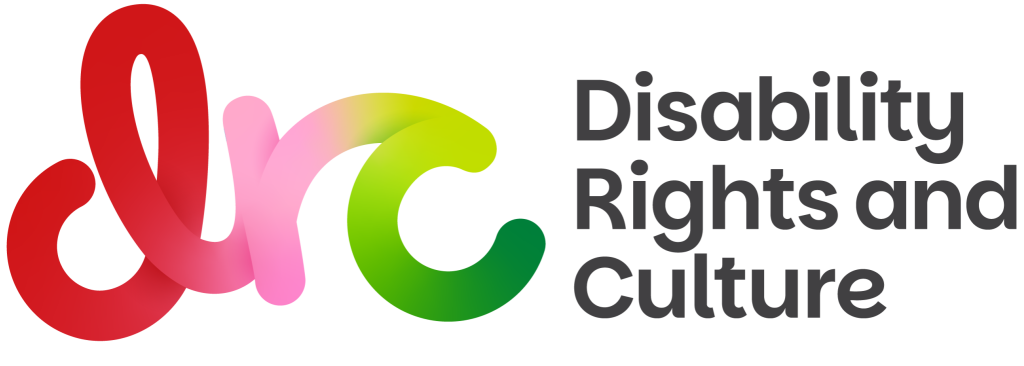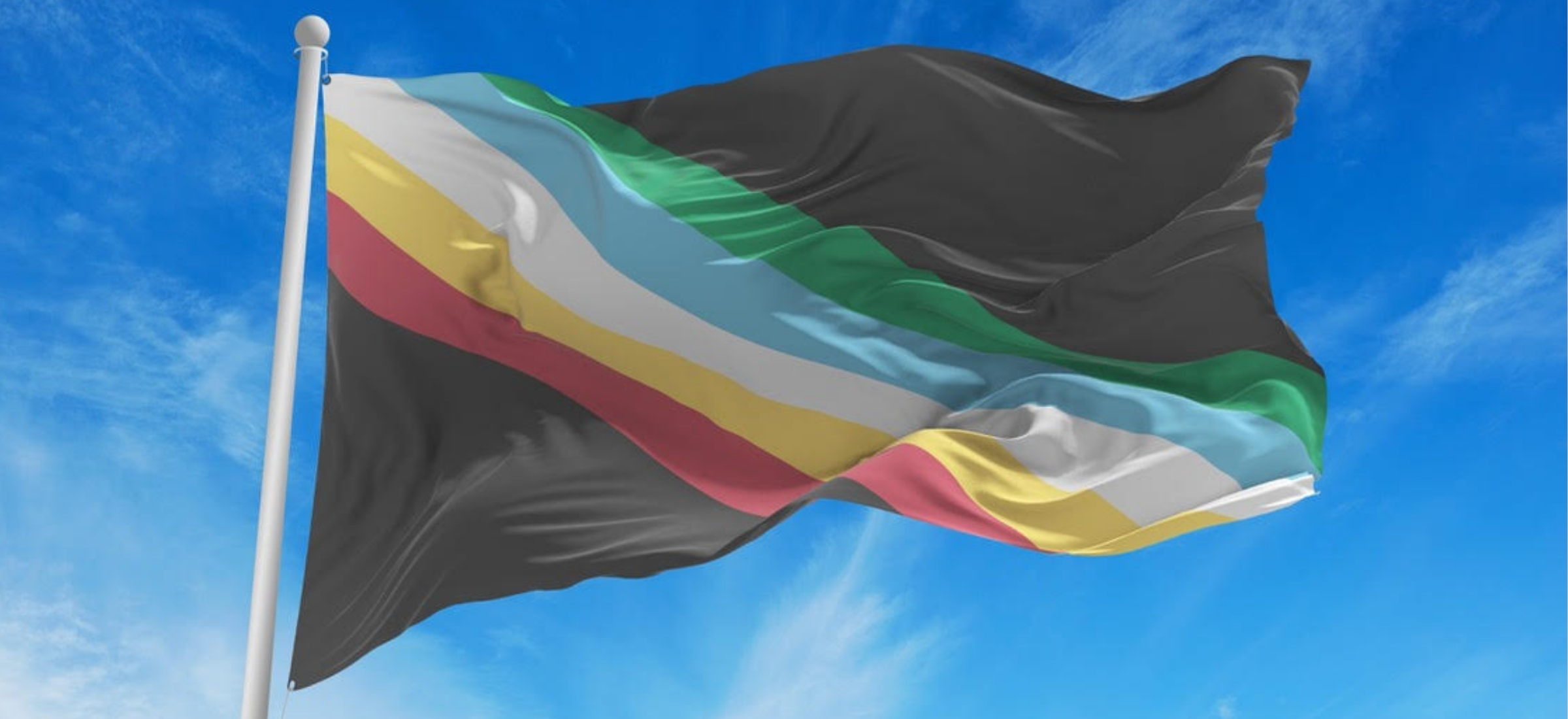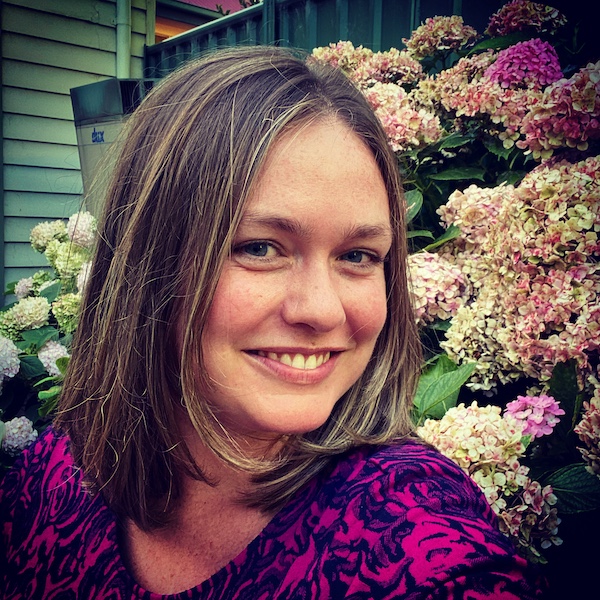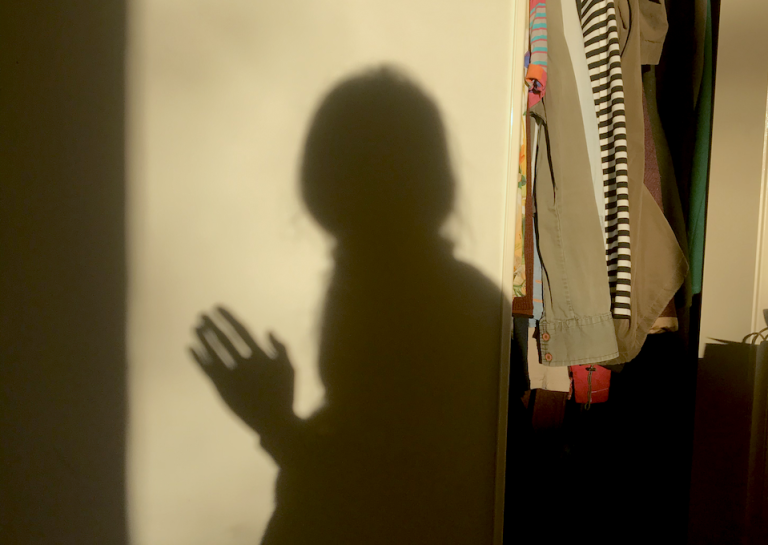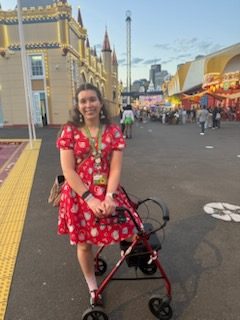Disability pride can be such a powerful thing. But that doesn’t mean it isn’t challenging.
The truth is, it’s hard to feel proud of being disabled in a world that wasn’t built for us. A world that actively discriminates against disability. A world that tells us to distance ourselves from disability. That tells us disability is a “bad word”, when we know it’s not.
It’s hard to embrace your disabled identity in a world like this. Especially when disability—in all its diversity—is something we often don’t see represented. Or if we do, it’s often the narrative of the tragic disabled life. Or worse— inspiration porn.
We often don’t see our experiences accurately represented, and this means that a lot of people don’t understand disability. Some of them are people who live with disabilities themselves but may not be aware that they can identify as disabled. Because society tells us that’s the last thing you should want. That you should fight against embracing a disabled identity with all your being. You should hide yourself. You should push through. You should do anything you can to force yourselves into non-disabled boxes. We see these attitudes a lot: and it actually stems from ableism. Again, something we don’t talk about a lot.
But we must. Because disability isn’t a bad thing, it’s a beautiful thing. And when we come together and celebrate that, it’s powerful.
Resisting ableism
Disability pride is resistance. It rejects the negative stereotypes and assumptions placed upon us by people who have no clue about what it’s like to be disabled. It celebrates us as a vibrant, diverse, and powerful community: a community that continually creates change, despite all the barriers we have to go through. And that is something that’s definitely worth celebrating.
This is something artist and advocate Larissa McFarlane has spent much of their career working towards. As a proud queer disabled feminist, Larissa has been involved in disability rights for over two decades. Back in 2017, they produced Australia’s first-ever Disability Pride mural, working alongside over 50 disabled artists.
To Larissa, pride is vital.
“Disability pride is our best tool for resisting ableism … It’s our best tool for being a good advocate, for being a good person. And practicing disability pride is at the heart of that”
– Larissa MacFarlane
But it can be really hard to be proud of our disabilities in this world
Not because disabilities are bad—but because of how our world perceives them. A lot of people will bend over backwards to avoid using the word “disability”. They’ll use euphemisms, like “differently abled” “differ-ability”, or “special” (gross), thinking it’s a good thing, when actually, it signals that disability is something we should be distanced from, or avoid. And honestly, it makes me really sad knowing there is a lot of people who don’t feel comfortable with their disabled identity.
Because I was one of them.
As someone who grew up disabled thanks to being autistic and living with complex mental health challenges, I didn’t know what I was experiencing “counted” as disability. When I first started working in the disability space, I’d think of myself as an imposter. Because I was “technically” disabled according to the definition, but “not really”. I viewed myself as someone who’d just “snuck in” to the space, even though that’s obviously not true. But this imposter syndrome is something a lot of people struggle with, especially those with invisible and dynamic disabilities.
When I began developing chronic pain and illness in my 20s, and didn’t know why, I felt like I was on a rickety raft, sailing across the lonely sea. Because I didn’t have a diagnosis, I didn’t think I was valid. And because I didn’t identify as disabled, I didn’t get accessibility. I just fought, and fought, and fought, trying to keep up with the non-disabled expectations around me, while feeling like a failure for not being enough.
It wasn’t until I connected with the disability community online that I realised . . . I was disabled.
And I was allowed to call myself disabled. And I was deserving of accessibility, of things that could reduce the barriers in my world, like using a wheelchair. Despite other people’s stigma: and trust me, there was a lot.
“Awww, don’t call yourself disabled,” is what one of my allied health professionals told me when I first started identifying as such. Others told me it was embarrassing. And honestly, it was this ableism, and these experiences that spurred me into advocacy.
Because it just felt so wrong that this is how we view a natural part of the human experience. When 20% of our population live with disability—and so many feel they must hide it.
Advocate Nat Christou also didn’t think she could call herself disabled.
“I didn’t think the word applied to me … Even when I lost my ability to walk and write. Disabled was a scary word … it meant failure, that we’re going to be pitied, that it’s something we need to hide or overcome … But looking back now, it’s clear that was just internalised ableism.”
– Nat Christou
The power of reclaiming your disabled identity
Being proud of being disabled can take a lifetime. Particularly if we don’t have positive influences around us, and in the media we consume.
“For a long time, I thought I was the problem … That I had to hide parts of myself to be accepted. But I realised I wasn’t the problem. Society is the one that needs to change.”
– Janet Curtain
She’s right. Society does need to change. Particularly the medical model of disability that views us as a problem to be fixed. But how can we change it?
Well, by prioritising disabled voices. By prioritising accessibility. By raising awareness of the issues and barriers our community faces and working with us to create change. By smashing stigma and ableism. By education—by lived experience. By sharing our stories and making sure there is nothing about us without us. Or really, just nothing without us.
Janet says learning about her rights, self-advocacy and the importance of speaking up helped her immensely.
“I learned to speak up … that gave me power. Sometimes it was hard, but I did it anyway, because I figured: if I didn’t speak up, who would?”
– Janet Curtain
It’s often our community that gives us power
Community connects us. Validates us. Empowers us. When we hear our own stories echoed in the stories of each other, it’s easier to see that we aren’t the problem: but we are the solution.
And that’s why disability pride, community, and celebrating disability is so important.
I think the disability community honestly saved my life. Certainly, they changed it, in the best way possible. Afterall, my options were: cosplay as a non-disabled person and destroy myself, or accept that I was different, and I was deserving of accessibility and inclusion.
It’s wild that simply being inclusive is seen as such a radical thing—because it basically just means we care for and cater for each other’s needs. And it’s such a shame that, outside of disability spaces, it’s a very rare thing.
It shouldn’t be.
Because we all know that accessibility, inclusion, and diversity benefit everyone.
Thinking historically, disability pride as a concept is rather new
In many places, we do not have rights. And for many people, disability is still shameful. Afterall, it wasn’t that long ago that we’d just be shoved into institutions and hidden away instead of being able to have a life of our own. And as we’ve seen in the Disability Royal Commission, this is something a lot of people are still facing. I personally think that a lot of people in power would rather we weren’t here to fight. That we would hide and quietly accept the scraps they give us.
But as more of our community embraces disability, as more of our community becomes proud and confident in advocating for ourselves and our needs, the more powerful we become. And celebrating disability pride is a huge part of that.
Unfortunately, it tends to only be the disabled community that celebrates disability pride. Which is why we need our voices and our stories to be heard.
“Disability pride is taking a stand against those who would rather we weren’t here … To put it simply: disability pride is saying, ‘yes, I’m disabled. I’m a disabled person. I’m a part of the disabled community. And we’re not going anywhere.’”
– Finnley Greet
And as for how we become proud?
Well, it can take time. It’s a journey. And as poet Laura Hershey says, we get proud by practicing.
“Remember, you weren’t the one
who made you ashamed,
but you are the one
who can make you proud.
Just practice,
practice until you get proud, and once you are proud,
keep practicing so you won’t forget.”
– Laura Hershey

Zoe Simmons is an award-winning journalist, author, speaker, disability advocate and human rights ambassador. She uses the raw power of storytelling and lived experience to smash stigma, create change, and help others to not feel so alone. Zoe is also a new addition to the DRC’s team as the communication and engagement coordinator.
Have a blog idea and want to share it? Reach out to Zoe@DRC.org.au
We’d love to here from you!
While you’re here, why not check out our free disability community, Belong?
